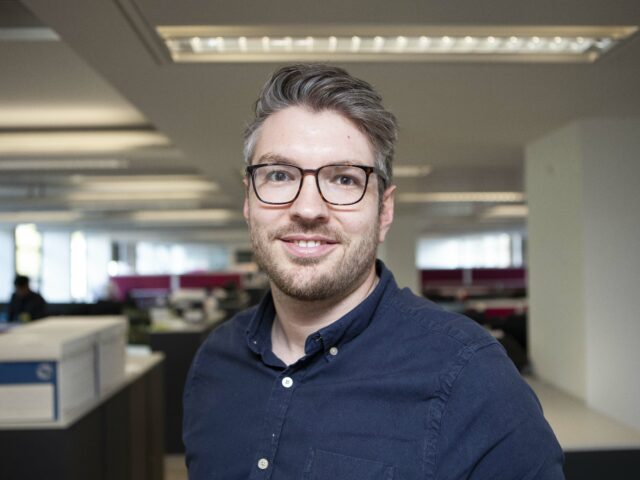A developer of clean energy technology, enabling the world’s most progressive companies to decarbonise at scale and pace, an AI-based forecasting and risk management tool that could save billions of pounds by preventing project delays, and graphene sensors many times more sensitive and energy efficient than established silicon technology are competing to be named the UK’s leading engineering innovation.
The three exceptional innovations have been selected by the Royal Academy of Engineering as finalists for the 2023 MacRobert Award, the longest-running and most prestigious award for UK engineering innovation. The MacRobert Award celebrates the engineering heroes behind world-changing technological innovations that demonstrate commercial success and tangible societal benefits, and the finalists were chosen following a rigorous and highly competitive judging process, chaired by engineering pioneer Professor Sir Richard Friend FREng FRS.
The three companies are competing for a gold medal and a £50,000 prize, with this year’s winner to be announced at the Royal Academy of Engineering Awards Dinner in London on 13 July.
This year’s finalists are:
- Ceres Power – Clean energy technology enabling a net zero future
- nPlan – AI helping to save billions lost to construction project delays
- Paragraf – Bringing commercial scale graphene electronics to the world
Professor Sir Richard Friend FREng FRS, Chair of the Royal Academy of Engineering MacRobert Award judging panel, says: “Engineering innovation is the driving force behind economic growth and a sustainable future and this year’s three MacRobert Award finalists are wonderful examples of UK engineering ingenuity in action, developing world-leading, commercially viable products that address many societal challenges.
“Harnessing the power of AI, nPlan’s machine learning platform is helping to de-risk some of the world’s largest construction and infrastructure projects, while Paragraf’s pioneering use of graphene offers—among other applications–a significant breakthrough in electric vehicle safety, and Ceres’ game-changing fuel cell will help accelerate decarbonisation and tackle climate change.
“This year’s MacRobert Award finalists continue a proud tradition of UK engineering innovation and illustrate the breadth of engineering talent in this country that we should celebrate and nurture.”
Dr Caroline Hargrove CBE FREng, Chief Technology Officer at Ceres, commented: “We are thrilled to gain the recognition of the Royal Academy of Engineering, which is testament to the hard work and dedication of our team as evangelists for the power of engineering and science to change our world.
“As a licensing company, innovation happens everywhere in Ceres – it’s in our DNA from the way we do things to the technology we provide. Partners are relying on us to do the deep technology innovation, to continuously improve performance of our core cells, so that it becomes increasingly economical to deploy this clean technology to decarbonise our energy systems and enable a net zero future.”
Dev Amratia, Co-founder and CEO of nPlan, says: “It seems like only yesterday that my co-founder Alan Mosca and I were told businesses would pay millions for technology like this but that it was impossible to build. Now we’re celebrating being shortlisted for the MacRobert Award for engineering innovation—it’s been quite a ride!
“Our AI continues to learn from construction and infrastructure plans every day so the insights we’re able to provide to project teams across the world are only getting more valuable. It’s a hugely exciting time for the business commercially, but it’s really the societal value we can create by solving this problem that gets us out of bed in the morning and pushes us to innovate again and again.”
Simon Thomas FREng, CEO of Paragraf, says: “Many said commercialising graphene for the electronics industry was a pipe dream but after years of hard work and outstanding engineering achievements across the team, we’re now seeing our graphene Hall sensors used across a broad variety of applications, each with vitally important functions for industry and society as a whole.
“This recognition shows just why so many industry-leading businesses are now coming to us with the electronics issues they’re facing and asking how graphene can solve them, from leading battery manufacturers and automotive giants, to quantum computing specialists. Ten years ago, that simply wouldn’t have seemed possible and it’s down to the sheer strength of engineering skills here at Paragraf.”




